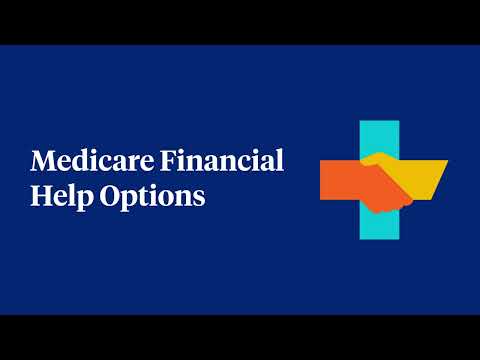Extra Help with Medicare prescription drug costs
What is Medicare Extra Help?
Extra Help is a program offered by Medicare for people with low incomes and limited assets. This is also called Part D Low Income Subsidy or LIS. But fewer than half of the people eligible for Extra Help sign up. So if you need help paying Part D premiums, deductibles and copays and think you might qualify (see qualifications below), submit an application.

Do I qualify for Medicare Extra Help?
To figure out if you qualify for Extra Help, you will need to list your income and resources. Income is how much money you (and, if you’re married, your spouse) receive each calendar year. Resources includes financial assets such as cash, checking or savings accounts, certificates of deposit, stocks, bonds, mutual funds, or individual retirement accounts.
If you get full Medicaid coverage, Supplemental Security Income (SSI) benefits from Social Security, or help from your state paying your Part B premiums (from a Medicare Savings Program), you qualify for Extra Help and may receive it automatically.
If you don’t receive Extra Help automatically, you can still apply for it .
To be eligible for help with drug costs, you must
- Live in the United States or District of Columbia.1
- Qualify for Medicare Part A and/or be enrolled in Medicare Part B.
- Have less than $23,475 in annual income2/$17,600 in resources (if single) in 2025.2
- Have less than $31,725 in annual income2/$35,130 in resources (if married) in 2025.2
If you aren't getting Extra Help, find out if you qualify by calling:
- 1-800-Medicare (TTY/TDD users call 1-877-486-2048), 24 hours a day/7 days a week
- Your State Medicaid Office
- The Social Security Administration at 1-800-772-1213. TTY/TDD users should call 1-800-325-0778 between 7 a.m. and 7 p.m., Monday through Friday.
How you can automatically receive Extra Help
If you meet any one of the criteria below, you will automatically receive Extra Help from Medicare to help with your Part D costs. There’s no need to apply.
- You receive both Medicare and Medicaid
- You receive both Supplemental Security Income (SSI) benefits and have Medicare
- The state pays your Medicare premiums
Counting your assets
To determine your eligibility, Medicare may also look at your assets. Assets Medicare counts include:
- Cash (including checking and savings accounts)
- Certificates of deposit
- Retirement accounts (like IRAs or 401(k)s)
- Stocks, bonds, and mutual funds
- Promissory notes
- Property that could be converted to cash within 20 days
- Mortgages
- Life insurance policies
Medicare does not count these assets:
- Your primary home
- Your primary car
- Burial plots or agreements
- Funds set aside for burial expenses (up to $1,500 per person)
- Premiums for members receiving Extra Help
1Programs may vary if you live in Puerto Rico, U.S. Virgin Islands, Guam, American Samoa, or the Northern Mariana Islands. Income amounts will vary for Hawaii and Alaska.
2Even if you have more or less than these amounts, you might still qualify for Extra Help and the amounts may change each year. The resource limits include $1,500 per person for burial expenses.
How do I apply for Extra Help?
Step 1: Choose a drug plan provider
Whether you qualify for Extra Help or not, you must enroll for prescription drug coverage in order to apply for Extra Help.
Step 2: Complete an application for Extra Help
Complete the online application
The Social Security Administration will review your application and send you a letter to let you know if you qualify for Extra Help with Part D costs.
Premium costs for Extra Help members
To learn more about plan premiums for people receiving Extra Help, please contact UnitedHealthcare Customer Service.
Other Extra Help resources
State Pharmaceutical Assistance Programs
A State Pharmaceutical Assistance Program (SPAP) provides state-funded prescription drug assistance to people who need help paying for their monthly prescription drug plan premiums, deductibles, copays, and coinsurance.
For most programs, members must meet specific income guidelines and additional requirements that vary by state.
To find out how to contact your state’s SPAP, visit https://www.medicare.gov/plan-compare/#/pharmaceutical-assistance-program .
Best Available Evidence policy
The federal Best Available Evidence (BAE) policy requires that the plan adjust your subsidy if you provide updated information that changes the level of Extra Help you receive. A memo on the CMS website explains the procedures for updating a person’s level of Extra Help.
Supporting you through your Medicare journey
Chat with UnitedHealthcare
Chat is currently unavailable.
Please try again later.
Find a plan
Meet with us
Make an appointment with a licensed insurance agent in your area.
